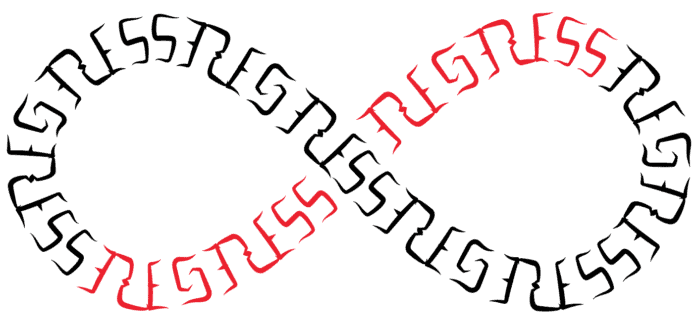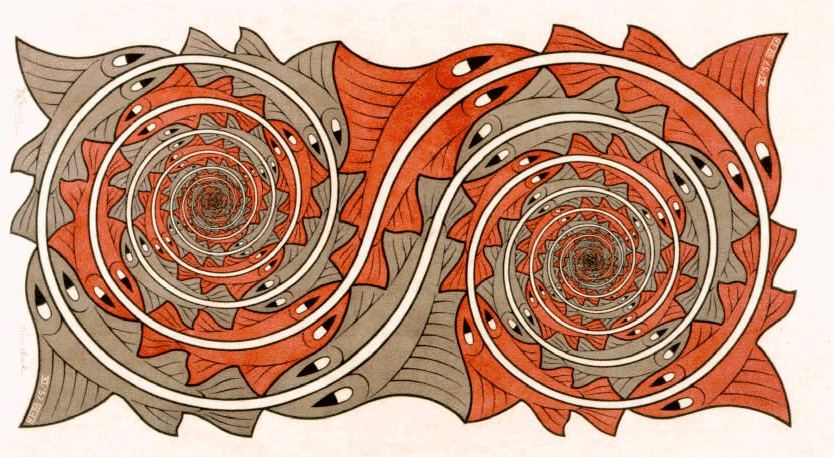You have wakened not out of sleep, but into a prior dream, and that dream lies within another, and so on, to infinity… The path that you are to take is endless, and you will die before you have truly awakened — Jorge Luis Borges
Borges’ quote of reality being a dream within a dream within a dream for ever and ever brings to mind the idea of infinite regress. This is the same as the hall of mirrors effect—the infinite reflections one generates when one places two mirrors parallel to each other—the same object repeated over and over and over. A similar idea can be seen in the design by “Whirlpools” design by M. C. Escher (above) where he combines one of his signature tessellations into two infinite spirals – spiraling inward forever.
These ideas led to my coming up with a new design for the idea of “infinite regress.” I have created many ambigrams to represent the idea of infinity (click here for examples) but this one is different in that it is a visual pun: The design itself is a 180-degree rotational-chain ambigram of the word “regress” mapped onto the universal symbol for infinity — hence “infinite regress.”




0 Comments